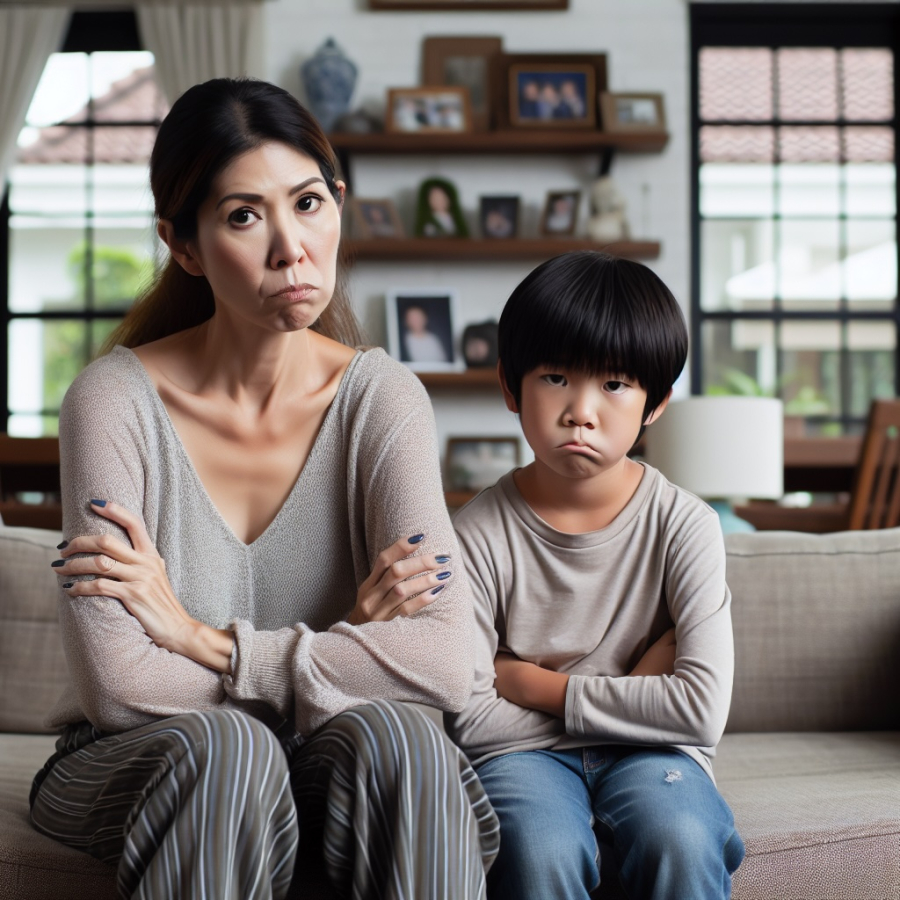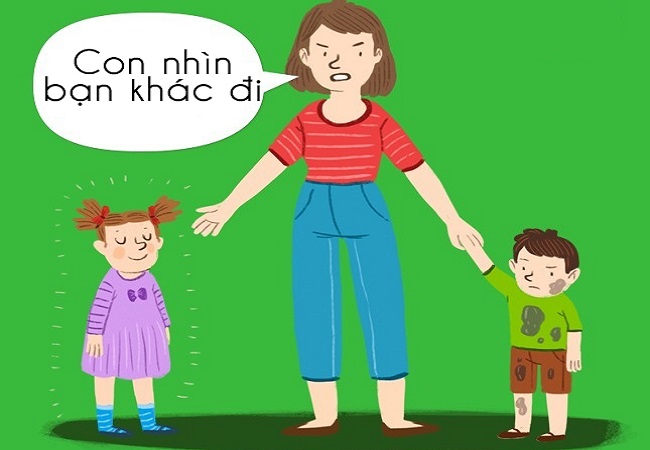There are 9 seemingly harmless things that can harm children. According to education experts, smart parents will always avoid these things to protect their children from potential harm.
The impact of parents answering for their children
Some parents often answer for their children in many situations. They worry that children will not know how to cope, so they choose to answer for them to avoid trouble. However, this can negatively affect the self-esteem and self-confidence of children.
Wise parents never speak for their children. Instead, they encourage children to express their thoughts and opinions. This helps children develop independent thinking habits, as well as improve communication and social skills.
Blaming children in front of others
Some parents believe that scolding children in front of others is an effective educational method. They believe that this will help children recognize their shortcomings and motivate them to improve.
However, according to psychologists, criticizing children in front of others can have a reverse effect. This not only damages the self-esteem of children but also makes them rebellious and difficult to control. Many children say that the thing they fear most, the most severe punishment for them, is losing face.
Not blaming children in front of others does not mean that parents accept wrong behavior. If a child behaves incorrectly, such as hitting someone without reason, losing control, or throwing a tantrum, parents should intervene immediately and clearly explain that such behavior is unacceptable. Parents should take the child to a quiet place and help the child recognize right from wrong in a timely manner.
Parents should help children correct their mistakes without damaging their self-worth. For example, if a child litter in a public place, parents just need to educate the child about the importance of cleanliness and the consequences of not keeping clean, instead of saying things like “Can’t you think?”. This will damage the child’s character and self-esteem. The choice of behavior when angry also reflects the emotional intelligence of parents.

Complaining in front of children
Everyone has to deal with stress in life, and cannot avoid moments of anger or boredom. However, if parents often complain in front of their children about work failures or life dissatisfaction, they may not realize that they are planting life pressures in the innocent minds of their children.
Parents who like to complain often make themselves tired. Moreover, showing frustration in front of children can take away their joy and create a gloomy atmosphere in the family.
When parents frequently complain, children will learn to do the same and start complaining innocently. This habit directly affects the child’s psychology, making the child easily dissatisfied if something does not go as desired, and is not good for the holistic development of the child.
Life is always full of complaints, making it difficult to find happiness, even if you have a good life. Smart parents will not let the happiness of the family they have tried to build be destroyed by their meaningless and boring complaints.
Focusing on children’s mistakes
Smart parents know how to accept their children’s mistakes and use them as opportunities to teach them valuable lessons. Moreover, they often acknowledge and appreciate the things their children have done well.
Psychologists advise parents not to focus too much on their children’s mistakes, especially in front of others. If this is repeated continuously, the child’s self-esteem can be damaged. This can also change the child’s perception of parents in a negative direction.
Transferring negative energy to children
“Have you ever thought about the money that your parents have to spend to support your education?”; “Mom gave up her favorite job because of you”; “Dad only focuses on the phone and doesn’t contribute anything to the family”… Statements like these are like sharp knives that hurt the delicate souls of children. At the same time, they also create a stream of negative energy that affects the parents themselves. Over time, children will become distant and no longer want to interact or listen to their parents.
Parents with high emotional intelligence know how to keep their negative emotions from affecting the family, and of course, they do not show them to their children. They understand that children need an optimistic and positive attitude to face life. They control their negative emotions and take the time to consider before expressing their anger to their children.

Complaining about poverty and hardship in front of children
The tradition of hard work has created the belief that, to be happy, children need to be educated about the spirit of diligence and hard work. Therefore, many families use education through deprivation, hoping that their children will learn to save and no longer ask for snacks or toys.
However, this method can lead to unintended consequences. Gradually, children can become less confident, less communicative, and even develop manipulative behaviors, flattering their friends just to get a little snack or play with their friends’ toys. The obedient child in the beginning gradually turns into an insecure and poor person who often cries.
Smart parents never talk about the difficulties of the family to their children. Instead, they will teach children how to rise from difficult situations. No matter what difficulties the family faces, the important thing is not to let the child’s mind be filled with the dirt of life but to keep the blue and bright sky of childhood.
Comparison
Some parents have a habit of comparing their children to other children, hoping that this will create motivation for their children to try harder. However, the reality has shown that this method often results in the opposite.
According to an article in Today’s Parent, researchers in the United States have pointed out that children’s scores and academic achievements are influenced by their parents’ beliefs. Children who are less compared tend to be more confident and have better learning.
Smart parents should learn to accept the strengths and weaknesses of their children. If the child still has shortcomings, instead of comparing, parents should play the role of guidance, helping the child find solutions to improve themselves.

Conflict in front of children
Regardless of how intense the conflict between parents is, arguing in front of children always creates negative psychological effects on children, even making children resentful towards their parents.
Studies have shown that children of parents who often argue tend to view the world more pessimistically, be easily irritable, rebellious, and often have trouble in relationships. Therefore, parents with high emotional intelligence will avoid arguing with their partners in front of their children. They will try to solve the problem more gently and at the same time create a positive image of reason and intellect for their children.
Lying in front of young children
Although the outside world can be very complicated, parents should not let their children be exposed to lies from an early age. Parents should teach their children that lying is an unworthy behavior and dishonest people will not be trusted and loved by others.
Children cannot distinguish whether lying is good or bad, they only understand that if adults often teach them about morality but can lie, then they can do the same. This not only erodes the child’s trust in the parents but also affects their moral development.
Therefore, for whatever reason, parents should not lie in front of their children. Parents need to instill in their children a sense of honesty and trustworthiness from an early age.



































